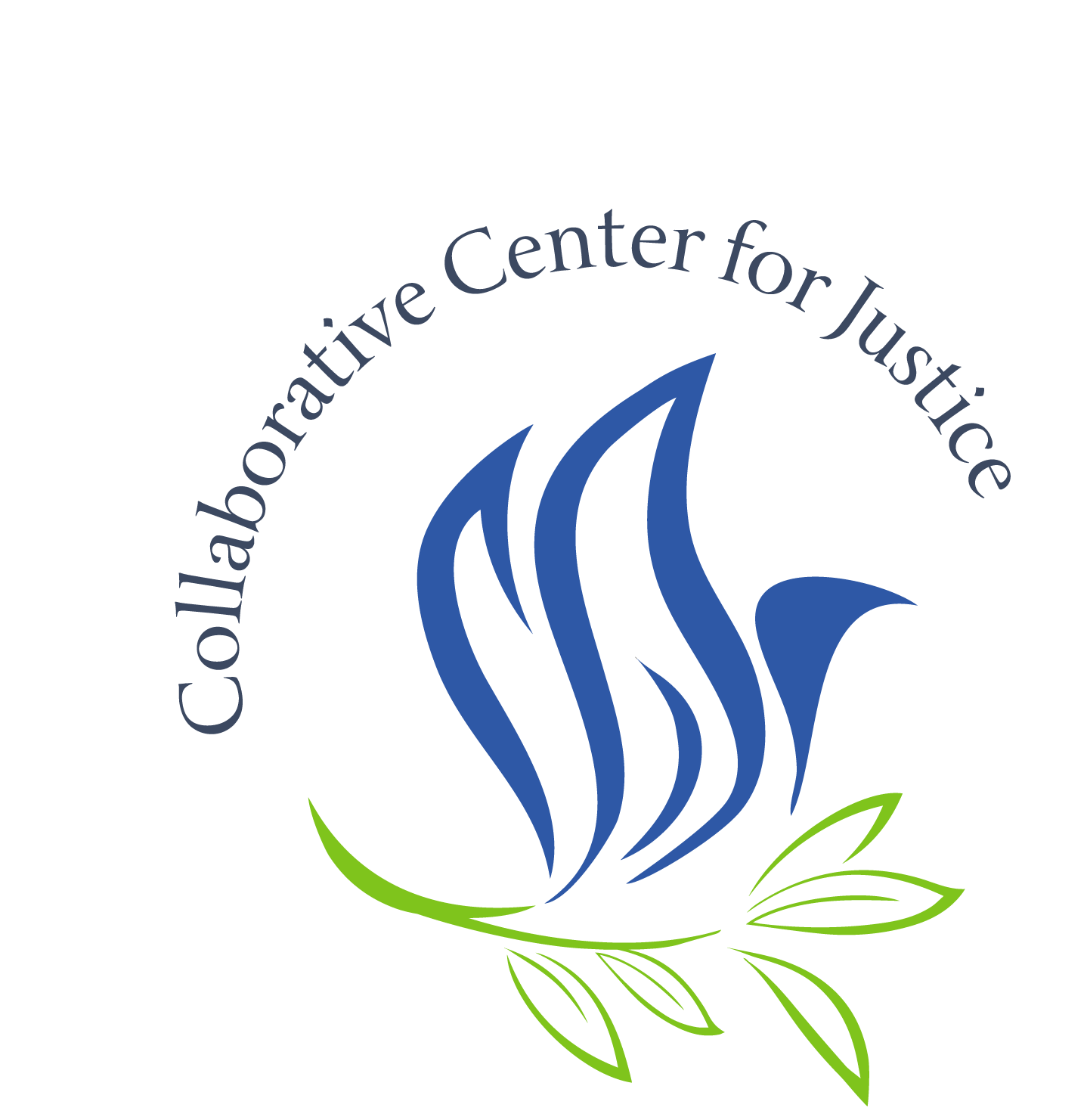Click here to read about H.B. 5297
Written Testimony Submitted to the Connecticut General Assembly Environment Committee in
opposition to H.B. 5297: An Act Concerning the Multiplicity of Affecting Facilities in Certain
Census Block Groups in the State.
March 14, 2022
To the Honorable Co-Chairs Senator Cohen and Representative Gresko, Vice Chairs, Ranking
Members, and distinguished members of the Environment Committee:
We are writing from the Collaborative Center for Justice, a Hartford-based social justice
advocacy organization primarily sponsored by six communities of Catholic women religious
across Connecticut. Our mission includes working for systemic change and advocating for
policies that improve the lives of low-income and other marginalized people.
We write in opposition to H.B. 5297: An Act Concerning the Multiplicity of Affecting Facilities
in Certain Census Block Groups in the State. We appreciate the acknowledgement that action
needs to be taken to protect environmental justice communities from continuing to be saddled
with the environmental and health impacts of polluting facilities. We also appreciate the
recognition that more needs to be done to promote environmental justice in Connecticut.
However, we do not believe that this bill will accomplish what really needs to be done to protect
overburdened communities from the impacts of additional polluting facilities.
The bill seeks to include the input from members of the Connecticut Equity and Environmental
Justice Advisory Council (CEEJAC), and we agree that voices from environmental justice
communities need to be included in the discussion about what legislative protections need to be
put in place to protect overburdened communities. We are concerned that the Commissioner’s
ownership of the report undermines the authority of community voices.
As people of faith, we are concerned about the climate crisis and environmental justice, as so
many people are. Low-income communities and communities of color have been
disproportionately impacted by air pollution and the effects of climate change. Efforts to address
these issues should be focused first in the communities that have been most impacted, and people
in these communities should have a meaningful seat at the table throughout the process where
their voices and expertise are valued.
We are also urgently concerned about the health, safety, and wellbeing of all people, and
particularly low-income and vulnerable people. Continuing to site polluting facilities in
communities already burdened by other major sources of pollution such as fossil fuel
infrastructure, incinerators, and waste facilities, is harmful and immoral. It is unjust that some
communities, usually low-income communities and communities of color, have to continue to be
the dumping grounds for pollution and environmental degradation. We believe that every person
has the right to live a life of dignity, and continual siting of polluting facilities in environmental
justice communities is a barrier to the protection of that right.
We appreciate the desire by the Committee and other legislators to address the critical issue of
environmental injustices experienced by overburdened communities around the state. To do that
in an effective way, we would suggest that an environmental justice bill include:
• Language that would require DEEP to deny any permit for an affecting facility that
would add to the cumulative environmental or public health burden of the particular
community in which the facility would be sited;
• Applying the environmental justice law to modified permits and renewal of permits, as
well as new permits;
• Strengthening of public notification processes and public comment opportunities in the
communities closest to the proposed facility;
• Provisions that would strengthen DEEP’s capacity to enforce existing, and future updates
to, the state’s environmental justice law;
• We also advocate that the process include, and be driven by, people living in
environmental justice communities and working with environmental justice communities.
Thank you for the opportunity to submit testimony.
Respectfully submitted,
Dwayne David Paul – Director
Rachel Lea Scott, MSW – Associate Director



